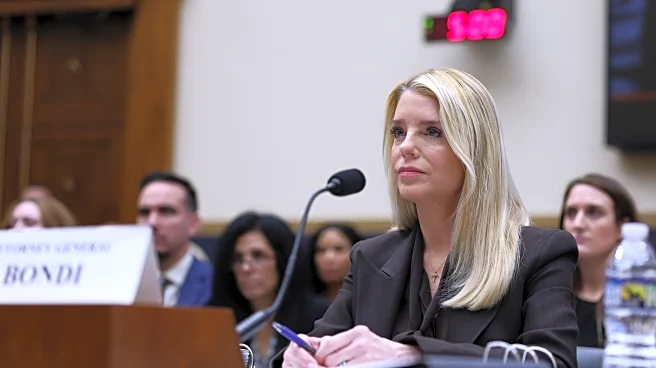What's Happening?
Over 100 nonprofit organizations, including Oxfam, Doctors Without Borders, and CARE, have called on Israel to end what they describe as the 'weaponization' of humanitarian aid in Gaza. These groups argue that Israel's registration rules, which require aid organizations to submit detailed lists of donors and Palestinian staff for vetting, are designed to control independent organizations and suppress advocacy. The rules, announced in March, have been criticized for potentially endangering staff and violating European data privacy regulations. The aid groups claim that these measures could block much-needed relief and replace independent organizations with those aligned with Israel's political and military agenda. Despite Israel's denial of these charges, the situation has led to significant challenges in delivering life-saving assistance to civilians in Gaza.
Why It's Important?
The allegations of 'weaponizing' aid in Gaza have profound implications for humanitarian efforts and international relations. The restrictions imposed by Israel could hinder the delivery of essential aid to a region facing severe humanitarian crises, including famine and displacement. The situation raises concerns about the politicization of aid and its use as a tool for control, potentially affecting the credibility and effectiveness of humanitarian organizations. The broader impact includes strained relations between Israel and international aid groups, as well as potential violations of international humanitarian law and data privacy regulations. The call for change highlights the need for transparent and impartial aid distribution to ensure that assistance reaches those in need without political interference.
Beyond the Headlines
The controversy surrounding aid distribution in Gaza underscores the ethical and legal challenges faced by humanitarian organizations operating in conflict zones. The requirement for detailed donor and staff information raises privacy concerns and questions about the security of sensitive data. Additionally, the situation reflects broader geopolitical tensions and the complexities of providing aid in politically charged environments. The long-term implications could include shifts in international aid policies and increased scrutiny of aid distribution practices, emphasizing the need for accountability and adherence to humanitarian principles.











